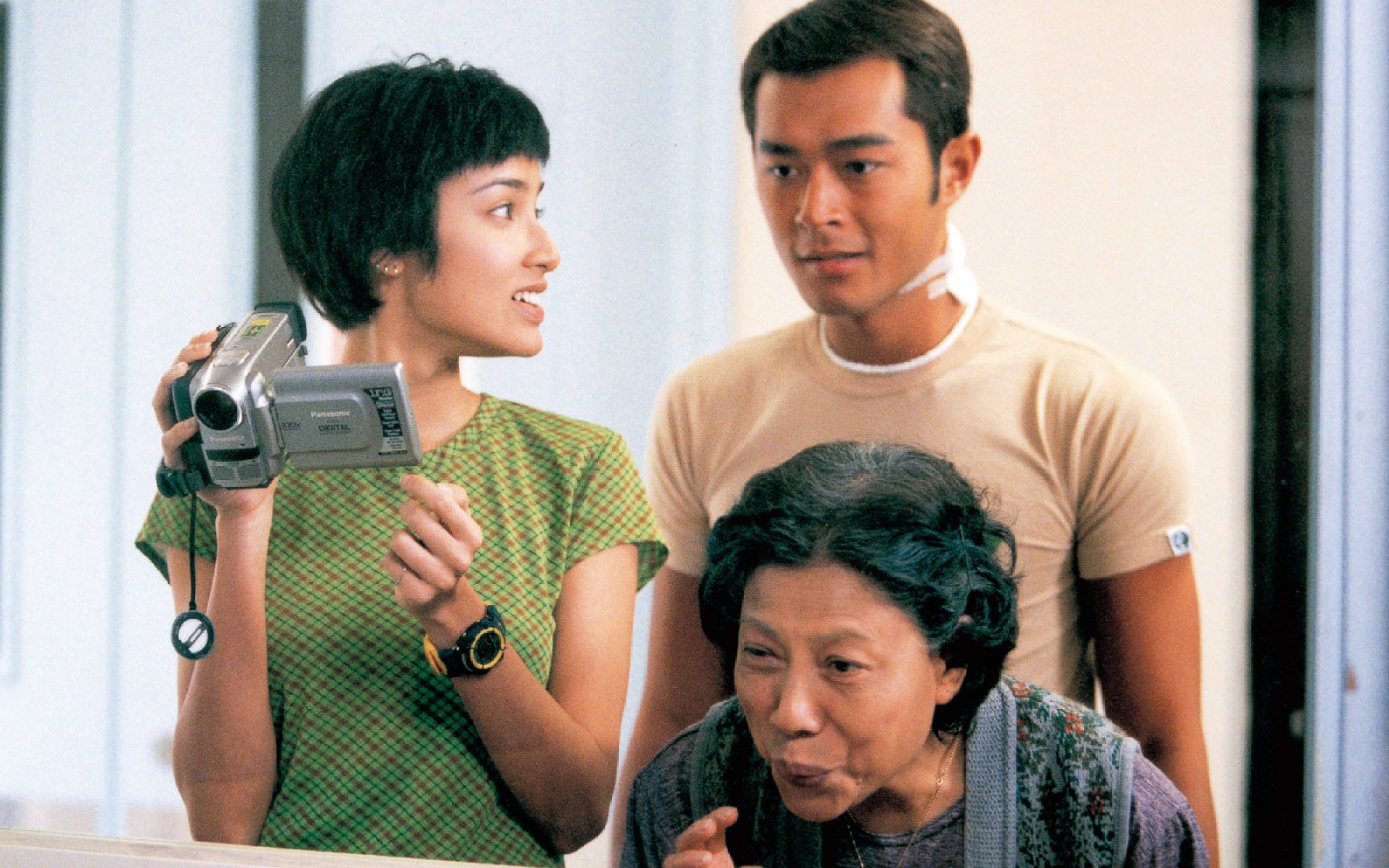Here we take a look at five of those “low-key” films by the veteran director.
Why Michelle Yeoh’s early Hollywood days mostly brought fame but no fortune
Why Michelle Yeoh’s early Hollywood days mostly brought fame but no fortune
1. 01:00 am (1995)
Yip had always been interested in filmmaking, he told the Post – he used to write reviews while watching films in the cinema when he was 10. He started working as an office assistant at the Cinema City production house in the 1980s, when the fabled company was at the height of its success.
“That was the golden era of filmmaking in Hong Kong, the 1980s – and Cinema City was providing lots of opportunities to young ones like me,” said Yip. “So, I was sent to work on set pretty quickly.”
Yip worked his way up to assistant director, and got the chance to make his own film when commercial filmmaker Andy Chin Wing-keung didn’t have time to make a movie he was scheduled to do.
The result was the horror omnibus 01:00 am, which sparked the trend which led to Herman Yau Lai-to’s popular Troublesome Night series. Yip once joked that 01:00am was his “most profitable” film.
2. Teaching Sucks (1997)
“Imagine a school where the teachers are as juvenile as the students, and you’ll have a vague idea of the antics in the expressively titled Teaching Sucks,” wrote Post critic Paul Fonoroff. “Wilson Yip has directed an innocuous comedy that will nonetheless provide a few laughs.”
3. Bio Zombie (1998)
It was another cheerful low-budget horror, 1998’s Bio Zombie, that got Yip some attention. The storyline features Sam Lee Chan-sam and Jordan Chan Siu-chun as a couple of pirate VCD vendors who fight off zombies in a shopping centre.

It’s a colourful film, which injects lighthearted humour into the horror, and the movie presages the little eccentricities that would come to be a hallmark of Yip’s style.
“It’s low budget, darkly humorous schlock … [which is] extremely entertaining,” said the Post.
“My model for movies like this is Men in Black,” Yip said. “I like my horror stories filled with action.”
4. Bullets Over Summer (1999)
Yip captured the attention of critics and local viewers with 1999’s Bullets Over Summer, an offbeat police story which, after a violent start, quietened down to concentrate more on characterisation than action.
As the story progresses, Ng’s cop becomes involved with the life of the old lady (played by Helena Law Lan), who is suffering from dementia, and thinks he’s her relative. He starts to look after her, and what begins as a subplot gradually takes over the film.
Meanwhile, Koo’s character becomes obsessed with the manager of the dry cleaners downstairs, played by Lim Mei-ching, a former Miss Malaysia.
The 25 best Asian martial arts movies of the 21st century ranked
The 25 best Asian martial arts movies of the 21st century ranked
“A respect for human relationships and a positive outlook on life give Bullets Over Summer an emotional quality seldom seen in Hong Kong films,” Grace Ng wrote in the Hong Kong Economic Journal.
Producer Joe Ma Wai-ho, who was known for producing up-to-date youth films, originally asked Yip to make a ghost story. But Yip convinced him to let him make a police film, and add his own characteristic touches. “I always want to make something fresh,” Yip said.

Yip has noted that the opening scene, which sees Ng and Koo foiling a robbery in a convenience store because the criminal is distracted by a woman’s clothing malfunction, is typical of his style.
“Life is unpredictable and filled with absurd things,” he said. “All these elements go into my films.”
5. Juliet in Love (2000)
Yip followed Bullets Over Summer with the unusual romance Juliet in Love (2000), which got him noticed by international film festivals. Set in the triad world, the film gradually morphs into a delicate character study that focuses almost exclusively on its two leads.
When the former’s triad boss asks him to look after his child for a week, he forms a bond with Sandra Ng’s character. A loving chaste relationship ensues and restores their faith in life, until tragedy ensues.
The film’s story was written based on its brilliant Chinese-language title, Juliet and Leung San-pak – devised by producer Joe Ma – which pairs the Shakespeare heroine with the hero of the Butterfly Lovers, which is also known as the Chinese Romeo and Juliet.
“As the title was fixed, we tried to think of a story that would fit it. So we put two characters from different worlds together,” Yip told the Hong Kong International Film festival.

“Because the film was to star Francis Ng and Sandra Ng, the audience would not expect to see a fairy tale love story,” said Yip. “So we decided on social misfits. They come together due to a mutual need for care and concern.”
Yip’s idea was to provide roles that showcased the dramatic potential of the two stars, and both perform well. But comedienne Sandra Ng said that the audience wasn’t expecting a more serious performance from her.
Paradox director Wilson Yip on the SPL series, Wu Jing and Ip Man 4
Paradox director Wilson Yip on the SPL series, Wu Jing and Ip Man 4
Unexpectedly, it was also Juliet in Love that led to Yip’s association with Ip Man star Donnie Yen.
“Donnie really liked Juliet in Love,” Yip told the Post. “He likes films with a human touch – he believes in good drama.”
In this regular feature series on the best of Hong Kong cinema, we examine the legacy of classic films, re-evaluate the careers of its greatest stars, and revisit some of the lesser-known aspects of the beloved industry.

